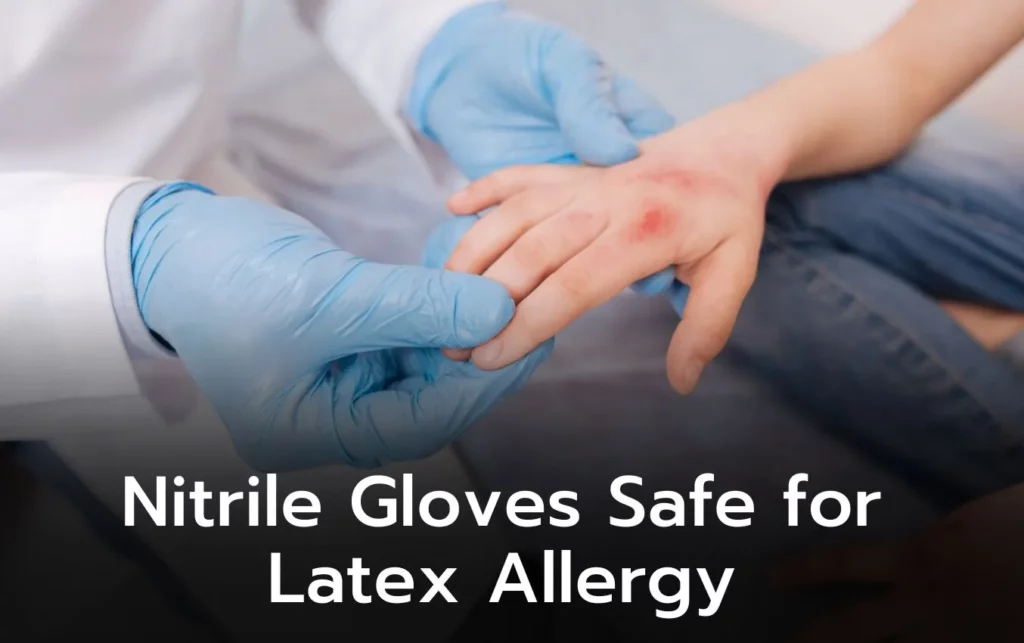With advancements in manufacturing, nitrile gloves are considered a safe and effective alternative for individuals with latex allergies. Studies show that nitrile gloves offer comparable protection with lower allergenic potential than latex gloves, making them a reliable choice for those with sensitivities. While there may be rare cases of chemical sensitization, overall, nitrile gloves are recommended by healthcare professionals as a suitable option for individuals needing latex-free protection in high-risk environments.
Table of Contents
- Nitrile Gloves as a Safe Alternative
- Hypoallergenic Properties
- Lower Allergenic Potential Compared to Latex Gloves
- Allergenic Potential of Nitrile Gloves
- Chemical Accelerators and Contact Dermatitis
- Rare Cases of Allergic Reactions
- Barrier Protection and Durability
- Superior Chemical and Puncture Resistance
- Reliability in High-Risk Environments
- Prevalence of Allergic Reactions and Dexterity
- Significantly Lower Incidence of Allergic Reactions
- Comparable Gross Dexterity to Latex Gloves
Nitrile Gloves as a Safe Alternative
Hypoallergenic Properties
With hypoallergenic properties, nitrile gloves are a suitable alternative for individuals with latex allergies. They do not contain the natural rubber proteins responsible for latex allergies, making them a safe choice for those with sensitivities.
Lower Allergenic Potential Compared to Latex Gloves
Studies have shown that nitrile gloves have a significantly lower allergenic potential compared to latex gloves. For example, in a survey, only 14.85% of participants reported allergies to nitrile gloves, while 85.14% reported allergies to latex gloves. This demonstrates the safer nature of nitrile gloves for individuals with latex allergies.
Allergenic Potential of Nitrile Gloves

Chemical Accelerators and Contact Dermatitis
Contact dermatitis can occur in some individuals due to chemical accelerators present in nitrile gloves. However, the risk of allergic reactions is generally lower compared to latex gloves.
Rare Cases of Allergic Reactions
Allergic reactions to nitrile gloves are rare but can still occur in some individuals due to specific chemicals used in the manufacturing process. Despite these rare cases, the overall prevalence of allergies to nitrile gloves is significantly lower than allergies to latex gloves.
To further illustrate, a study identified 2-cyanoethyl dimethyldithiocarbamate (CEDMC) as a new contact allergen in nitrile gloves. However, such cases are few and far between compared to the widespread allergies associated with latex gloves. As a result, while there is a minimal risk of allergic reactions, nitrile gloves remain a suitable alternative for individuals with latex allergies.
Barrier Protection and Durability

Superior Chemical and Puncture Resistance
Any individual with a latex allergy can benefit from nitrile gloves’ superior chemical and puncture resistance compared to latex gloves. While latex gloves are prone to tearing and offer less protection against harsh chemicals, nitrile gloves provide a reliable barrier in high-risk environments.
Reliability in High-Risk Environments
The reliability of nitrile gloves in high-risk environments is crucial for professionals with latex allergies. To ensure safety and efficiency, it is necessary to use gloves that offer optimal protection against chemical exposures and punctures, making nitrile gloves a preferred choice for individuals in healthcare settings or other industries where durability and barrier protection are paramount.
Another key advantage of nitrile gloves in high-risk environments is their resistance to punctures and tears, providing reliable protection when handling potentially hazardous materials. This durability makes nitrile gloves a practical option for individuals with latex allergies who require gloves that can withstand the rigors of demanding work environments.
Prevalence of Allergic Reactions and Dexterity

Significantly Lower Incidence of Allergic Reactions
After transitioning to nitrile gloves, studies have shown a significantly lower incidence of allergic reactions compared to latex gloves. In a survey, only 14.85% of participants reported allergies to nitrile gloves compared to 85.14% for latex gloves.
Comparable Gross Dexterity to Latex Gloves
To assess the dexterity of nitrile gloves, research has indicated that they offer comparable gross dexterity to latex gloves. While they may slightly impede fine finger dexterity, the overall benefits of reduced allergenic risk outweigh this minor drawback.
Any More Information about Comparable Gross Dexterity to Latex Gloves
| Benefit | Details |
| Reduced Allergenic Risk | Nitrile gloves are hypoallergenic and do not contain the natural rubber proteins found in latex gloves |
| Dexterity | Improved manufacturing processes have enhanced dexterity in modern nitrile gloves, making them practical for various tasks |
Latex Allergy Comparison
| Latex Allergies | 85.14% of participants reported allergies to latex gloves |
| Nitrile Allergies | Only 14.85% of participants reported allergies to nitrile gloves |
Drawing together the evidence from multiple research studies, it is clear that nitrile gloves are a safe and effective alternative for individuals with latex allergies. While there is a minimal risk of allergic reactions due to specific chemicals in nitrile gloves, overall, they offer superior protection and dexterity, making them a reliable choice for healthcare workers and other professionals. With their hypoallergenic properties and widespread recommendation in clinical settings, nitrile gloves can provide peace of mind for those with latex allergies.
